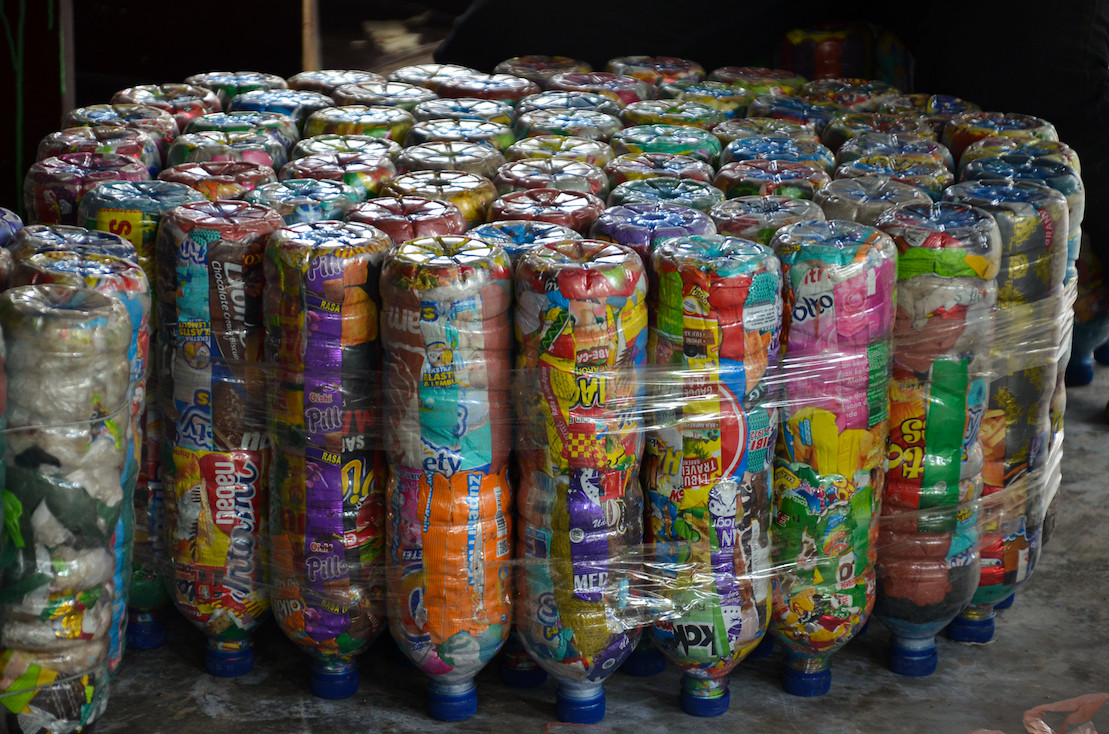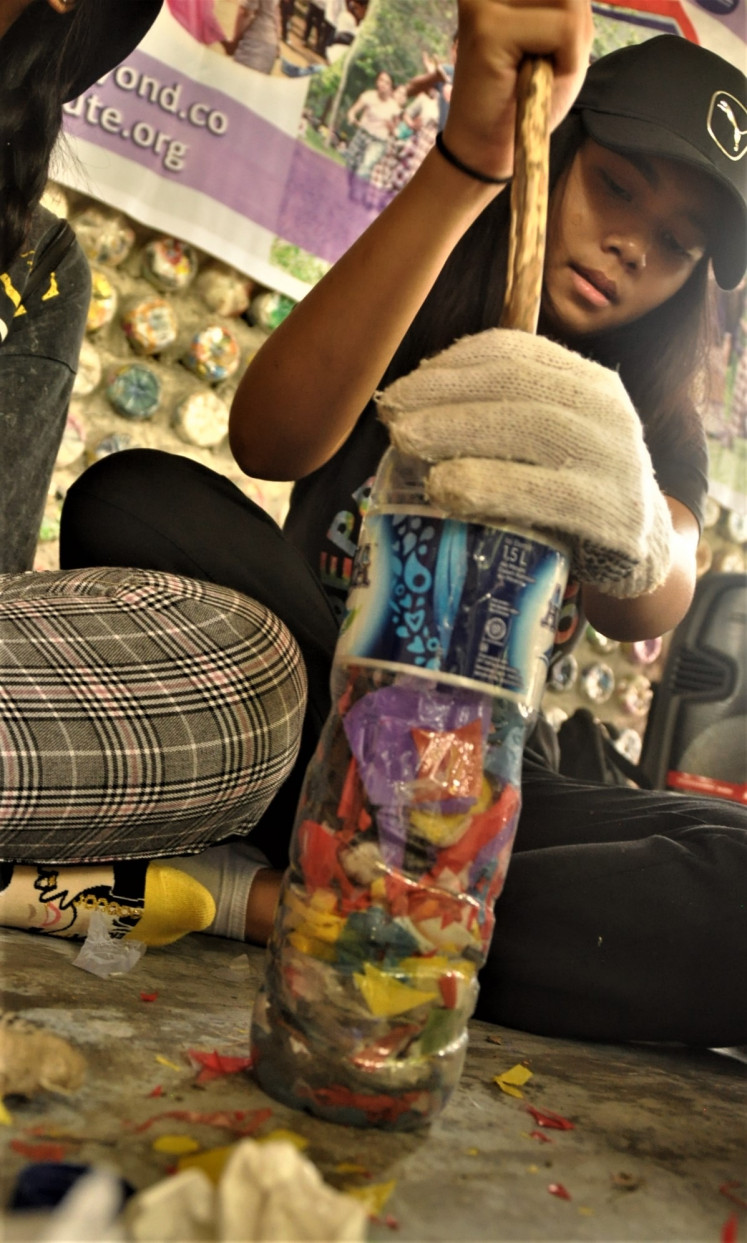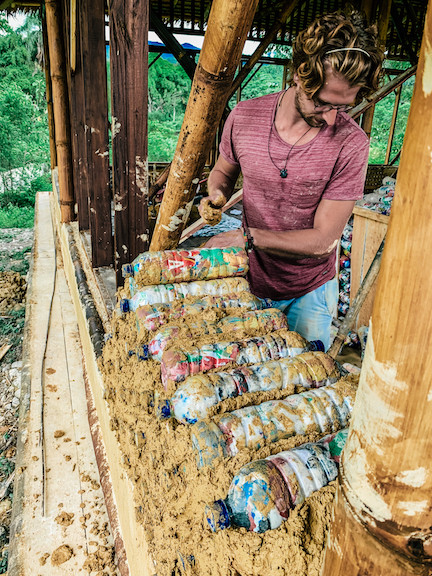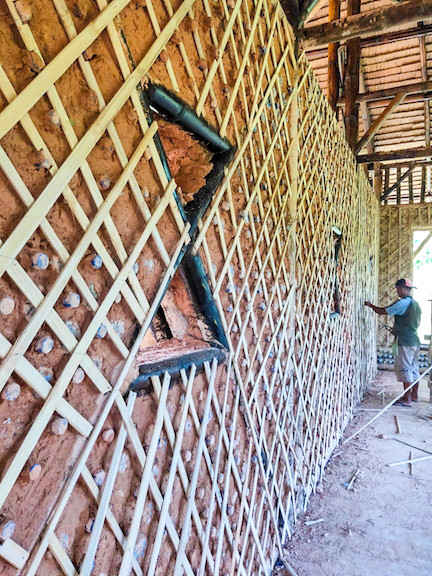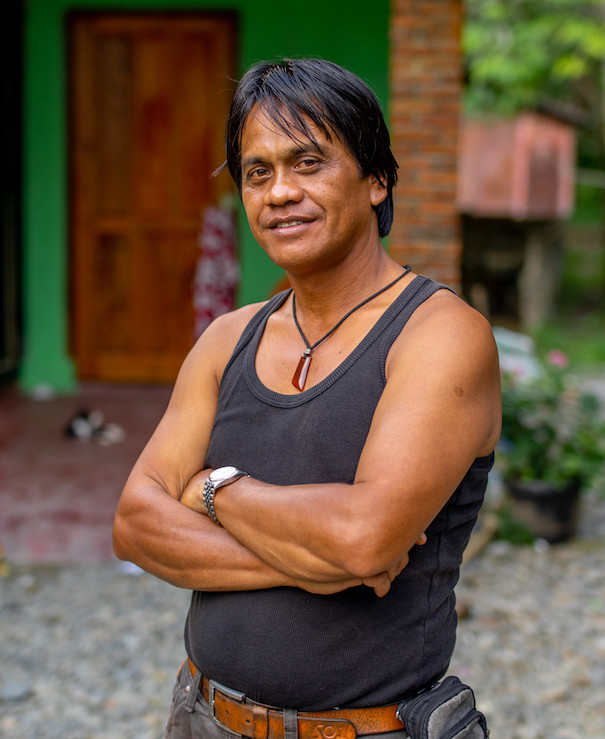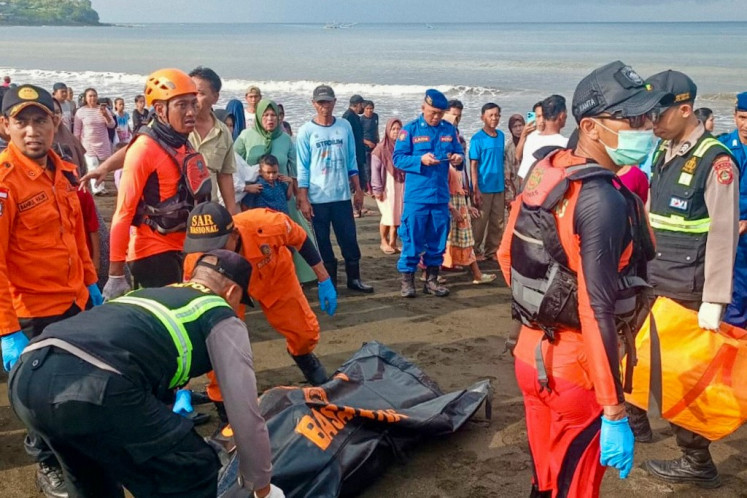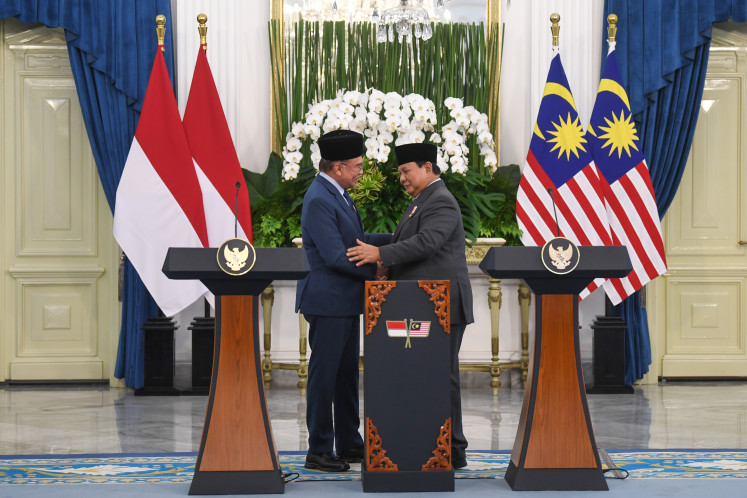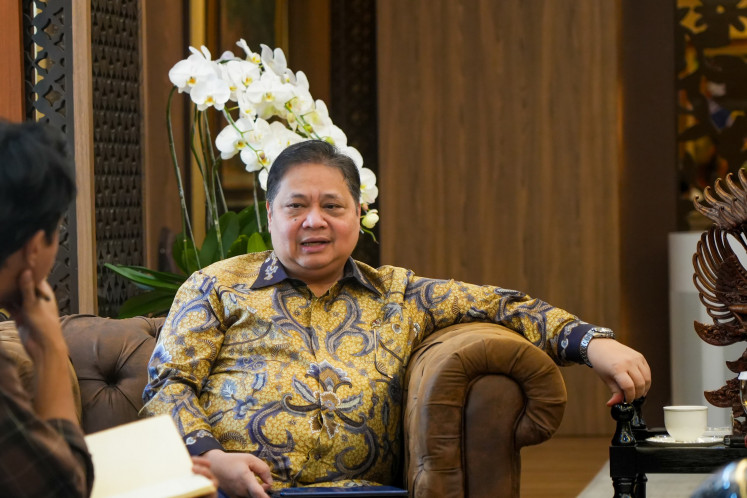Popular Reads
Top Results
Can't find what you're looking for?
View all search resultsPopular Reads
Top Results
Can't find what you're looking for?
View all search resultsNo wasted effort: The world’s largest recycling village in Sumatra
German NGO Project Wings works closely with locals to ensure the village is self-sustaining upon completion.
Change text size
Gift Premium Articles
to Anyone
G
unung Leuser National Park in Sumatra is one of the last places on earth where critically endangered orangutans still live in the wild. It is also home to thousands of other species – but many of them are on the brink of extinction due to the massive rainforest destruction, primarily for palm oil production, which is neither good for the biodiversity nor for the climate in general.
Another huge problem in the area is the high amount of plastic waste. Every year, Germany sends around 67,000 tons of plastic waste to Indonesia – that is the weight of approximately 1,000 elephants – and Germany is only one of 21 countries with plastic export to Indonesia. In addition, Indonesia is the world’s second biggest plastic producer and has an insufficient recycling system.
Enter Project Wings, a non-profit organization from Germany with the aim of building the world’s largest recycling village in Bukit Lawang. Marc Helwing, Erich Stieb, Leonie Daimann and Sebastian Keilholz, all of whom used to work as fund-raisers for some of the biggest NGOs worldwide, founded Project Wings in March 2019. Their aim is to combine environmental and animal protection with humanitarian aid, through projects that are geared toward leaving behind a self-sustainable system, guided by the locals.
The process of producing ecobricks (Courtesy of Project Wings/Project Wings)Civil engineer and ecobrick expert David Heitmann joined Project Wings in August 2019 after hearing about their work on the radio and spent some six months in Sumatra. The project, he says, has become a big part of his mission in life.
“One of our first actions was to establish an ecobrick deposit system,” Heitmann says, explaining the different steps of building an ecobrick. “First, you have to collect plastic waste, clean it and dry it. Then, the plastic waste has to be cut into small pieces and compressed into a clean bottle. It must weigh at least 500 grams. Only then can we use them as construction bricks.”
For every ecobrick the locals produce, they receive Rp. 5,000 from Project Wings.
“In the end, that Rp 5,000 is for half a kilogram of waste that would otherwise land in the river or would be openly burned,” Heitmann adds.
For the Green Education Center in the recycling village, the first building to be completed, around 10,000 ecobricks – or five tons of plastic waste – were used in combination with homemade clay instead of cement.
“You only need natural clay, rice husk, cow dung and water,” Heitmann explains. “By using clay instead of cement, we have zero greenhouse gas emissions during the production process, as long as we mix the clay with our bare hands and feet. It is also easier to deconstruct the wall without damaging the ecobricks. If, for some reason, the building needs to be knocked down, we don’t have to break down the wall as a whole, which would be the case if we had used cement. Instead, we can deconstruct the wall and re-use the ecobricks.”
Besides its main function as a free classroom space for local schools, the Green Education Center is used for team meetings, green class, workshops or English classes for the Indonesian employees – Project Wings currently employs more than twenty permanent local staff.
Among them is Sabarata Bangun ,who met cofounder Sebastian Keilholz two years ago.
“We talked a lot about an effective waste management for Bukit Lawang and its surrounding areas, recycling and a way for locals to get involved in getting rid of or even generate an income with the rubbish,” says Sabarata who officially joined Project Wings as the local project manager last year.
On 3 hectares of land, the construction of more buildings is either underway or will commence soon, including a marketplace, a co-working space, a Rainforest Museum, a green sports court and a restaurant with an inside and outdoor area, which provides space for around 100 guests and serves meals cooked with fruits and vegetables from the village’s permaculture garden.
“So far, we have already bought more than 73,000 ecobricks from the locals – this is more than 30 tons of plastic waste,” Heitmann explains. “More importantly, those 73,000 ecobricks enable dozens of families to have an additional income while at the same time cleaning the environment. This is a crucial factor, especially in times of COVID-19, because more than half of the population in Bukit Lawang depends on tourism as a source of income.”
The long-term plan for the recycling village is not only to become a place of education and joy, but also to generate income – which is most essential to Project Wings so they can leave behind a self-sustaining system.
The process of building the village's Green Education Center (Courtesy of Project Wings/Project Wings)“The village will create dozens of jobs, and the visitors will learn about the environment and sustainability,” Heitmann says. “We want to create positive impact and hope to finish the complete village within the next two years.”
In addition to the recycling village, he adds, there are many other interrelated projects, like a tree-planting initiative, a rescue center for cats and dogs and a ranger patrol to protect the wildlife. Heitmann is especially proud of the trash bank and the garbage disposal system they created because it has a major impact on the infrastructure in the area.
“We bought more than 400 garbage bins and placed them around Bukit Lawang,” he explains. “Now, the local citizens put their biodegradable waste in one bin, and non-biodegradable in another one instead of burning everything together as they did before.”
They pick up the waste twice a week. The organic waste goes to the compost house, the rest to the trash bank, both of which were specifically built for this purpose. The staff turns the organic waste into compost that is used for the permaculture garden.
Sabarata Bangun is Project Wings' Local Project Manager (Courtesy of Project Wings/Project Wings)“At the trash bank, the plastic is separated and cleaned and either sold to bigger recycling companies, or used to produce ecobricks,” Heitmann says. “The income from the recycling companies is used to pay the workers and maintain the trash bank. In conclusion, Project Wings was able to integrate a proper recycling system in the village. In my opinion, this is a giant step into the right direction and a perfect example of beneficial development help.”
Sabarata says the long-term benefits of the recycling village will be immense and highly valuable to the locals for years to come – even when the Germans will eventually withdraw.
“Between the trash bank, our socialization program for waste management, our Monday Clean Up Action campaign and the green classes for the kids to learn more about the environment, we work closely with the community and show them how to take better care of their surroundings,” he explains. “Not only for us, but also for future generations. I think there is no better motivation to do a job.”
Visit https://www.project-wings.de/en/ for more information.

